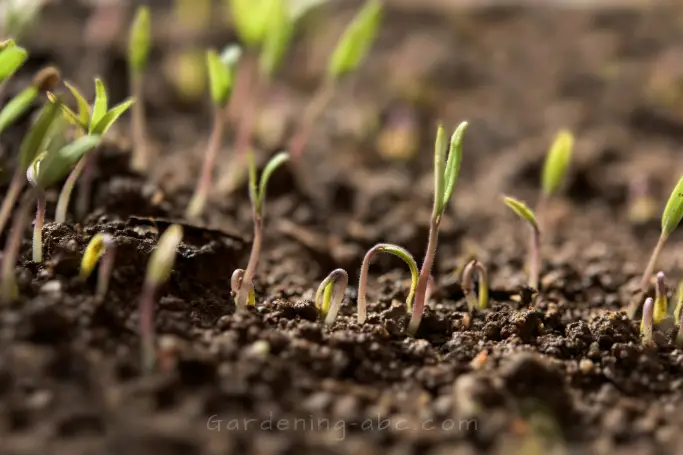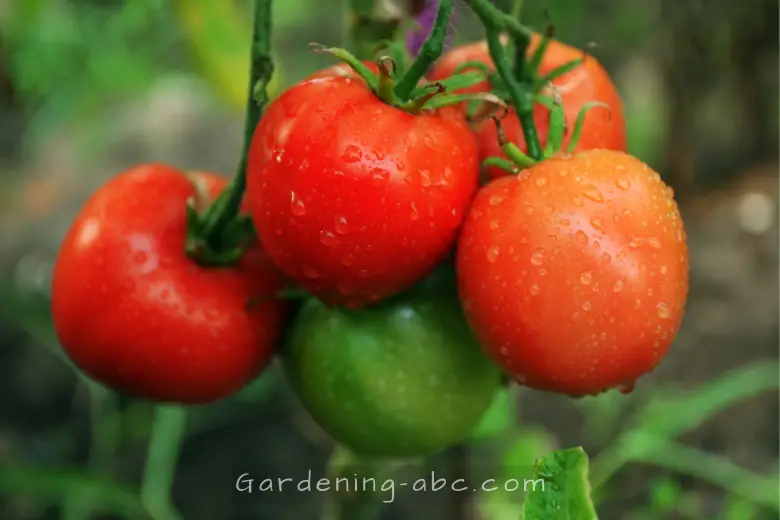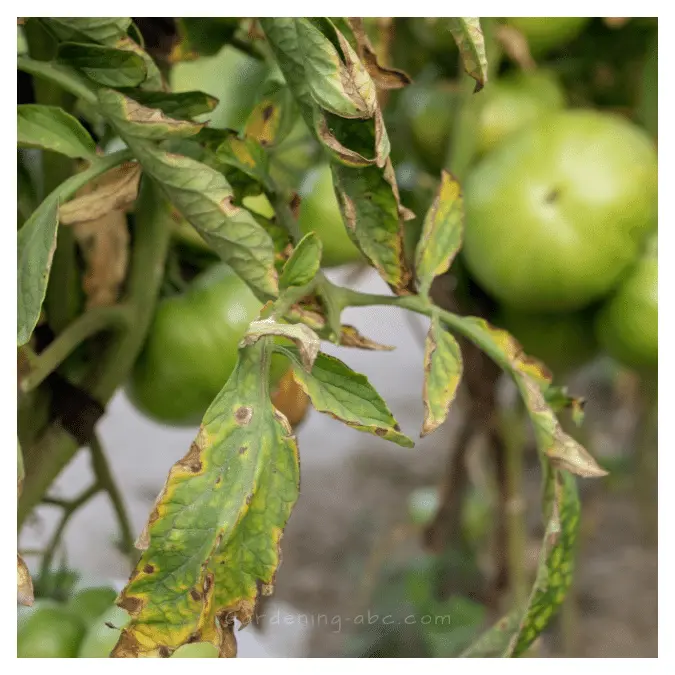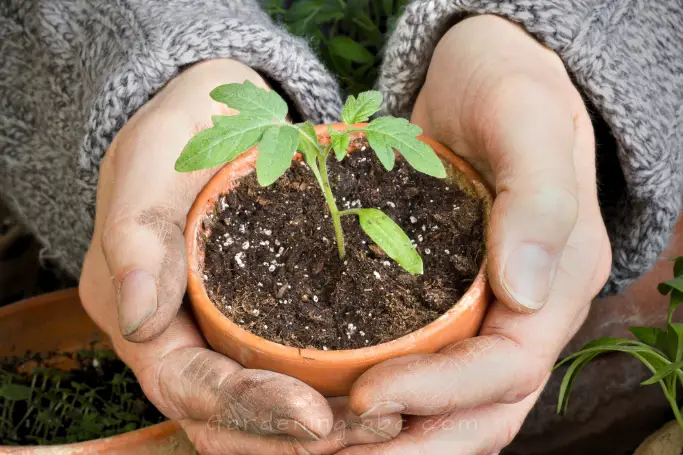We use affiliate links to run our site. When you buy through links on our site, we may earn an affiliate commission, without any added cost to you. Learn more
Tomatoes are a popular choice for home gardeners and plant enthusiasts. They are not only delicious but also relatively easy to grow. However, one important factor that affects the success of tomato plants is the pH level of the soil they are planted in.
As avid gardeners know, different plants have different preferences when it comes to soil conditions. Some plants thrive in acidic soil, while others prefer alkaline or neutral soil.
Understanding the specific needs of the plants you grow can significantly impact their overall health and productivity. In the case of tomatoes, it is essential to consider the acidity of the soil they are planted in.
In this article, we will explore the relationship between tomatoes and acidic soil, understand the significance of soil pH, and learn how to create optimal conditions for growing healthy and productive tomato plants.
Understanding Soil pH
What Is Soil pH?
Soil pH is a measure of its acidity or alkalinity. It is determined by the concentration of hydrogen ions in the soil. The pH scale ranges from 0 to 14, with 7 being neutral. Values below 7 indicate acidic soil, while values above 7 indicate alkaline soil.
Importance of Soil pH for Plant Growth
Soil pH plays a crucial role in plant growth and development. It affects nutrient availability, microbial activity, and the overall health of plants.
Different plants have specific pH preferences, and when the soil pH deviates from their ideal range, it can hinder their ability to absorb essential nutrients, leading to stunted growth, nutrient deficiencies, and even plant diseases.
Acidic Soil and Tomatoes

Do Tomatoes Like Acidic Soil?
Tomatoes prefer a slightly acidic soil pH range of 6.0 to 6.8. Within this range, they can efficiently take up nutrients from the soil and maintain optimal growth.
However, if the soil becomes too acidic or alkaline, it can negatively impact the plant’s ability to access nutrients, leading to reduced yields and poor plant health.
Effects of acidic soil on tomato plants
When tomatoes are grown in highly acidic soil, their ability to absorb essential nutrients such as nitrogen, phosphorus, and potassium becomes impaired.
This can result in nutrient deficiencies, weak plants, and reduced fruit production. Additionally, acidic soil can increase the risk of certain plant diseases, such as blossom end rot.
Testing Soil pH
To ensure that your tomato plants are growing in the ideal soil conditions, it is essential to test the pH of your soil. Several methods can be used to determine soil pH, ranging from DIY home testing kits to professional laboratory analysis.
One of the most convenient and affordable ways to test soil pH is by using a pH testing kit specifically designed for gardening purposes.
Using A pH Testing Kit
pH testing kits like these typically consist of a test strip or probe that measures the pH level of the soil. To use a pH testing kit:
- Collect soil samples from different areas of your garden where you plan to grow tomatoes.
- Follow the instructions provided with the kit to prepare the soil samples.
- Place the test strip or probe into the soil sample and wait for the recommended time.
- Compare the color or reading on the test strip or probe with the pH scale provided to determine the soil pH level.
By regularly testing your soil pH, you can monitor any changes and make necessary adjustments to create optimal conditions for your tomato plants.
Top Low-Acid Tomato Varieties That You Can Grow at Home
Adjusting Soil pH for Tomatoes
If you discover that your soil pH is too acidic for tomatoes, there are methods you can employ to adjust it and create a more suitable environment for your plants.
Raising Soil pH
To raise the pH level of acidic soil, you can incorporate alkaline materials such as:
- Garden lime: Garden lime, also known as agricultural lime, is commonly used to raise soil pH. It consists of calcium carbonate, which neutralizes acidity over time.
- Wood ash: Wood ash, obtained from burnt wood, contains potassium and other minerals that can help increase soil pH. However, it should be used sparingly, as excessive application can raise pH levels too high.
There are a lot of other options as well. Here you can find all about increasing soil pH.
Before applying any amendments, it is crucial to follow the instructions on the packaging and consider the current pH level of your soil. It’s best to make gradual adjustments to avoid sudden pH fluctuations.
Lowering Soil pH
In some cases, you may encounter soil that is too alkaline for tomato plants. To lower the pH level and make it more acidic, you can use:
- Elemental sulfur: Elemental sulfur is a commonly used amendment to reduce soil pH. When applied and combined with soil moisture, it undergoes a chemical reaction that generates sulfuric acid, thereby lowering the pH.
- Organic matter: Incorporating organic matter, such as compost or well-rotted manure, into the soil can help improve soil structure and slightly lower the pH.
Again, it’s important to follow the recommended application rates and monitor the soil pH regularly to ensure it remains within the desired range. We have a detailed post on how to reduce the pH of soil.
Best Practices for Growing Tomatoes in Acidic Soil
Growing tomatoes in acidic soil requires careful attention to certain practices to maximize their growth and productivity. Consider the following tips:

Selecting suitable tomato varieties
Certain tomato varieties are more tolerant of acidic soil conditions than others. When choosing tomato seeds or transplants, look for varieties that are labeled as “acid-loving” or “suitable for acidic soil.” These varieties have better adaptability to lower pH levels and can thrive in acidic environments.
Guide to Growing Heirloom Tomatoes [Here Are Our Top Picks]
Providing proper nutrition
Acidic soil can affect nutrient availability, so it’s essential to ensure your tomato plants receive adequate nutrition. Regularly fertilize them with a balanced fertilizer that contains essential nutrients like nitrogen, phosphorus, and potassium.
Additionally, consider using organic fertilizers or compost to provide micronutrients and promote overall soil health.
Amending soil with organic matter
Adding organic matter to acidic soil can improve its structure, drainage, and nutrient-holding capacity. Incorporate compost, well-rotted manure, or other organic amendments into the soil before planting your tomatoes.
This will help create a more favorable environment for root development and nutrient uptake.
Common Challenges and Solutions
While growing tomatoes in acidic soil, you may encounter specific challenges. Here are some common issues and their solutions:

Blossom end rot
Blossom end rot is a physiological disorder that affects tomatoes and is often associated with calcium deficiency. However, acidic soil can exacerbate this problem. To prevent blossom end rot, ensure consistent watering to avoid fluctuations in soil moisture levels.
Additionally, provide adequate calcium through the use of calcium-rich fertilizers or by incorporating crushed eggshells into the soil.
What Causes Brown Spots on Tomato Leaves, and How Can I Fix Them?
Nutrient deficiencies
Acidic soil can limit the availability of certain nutrients, leading to deficiencies in tomato plants. Monitor your plants for signs of nutrient deficiencies, such as yellowing leaves or stunted growth.
Address these deficiencies by using fertilizers specifically formulated for acidic soil or by foliar spraying with nutrient solutions.
Can I grow tomatoes in slightly acidic soil?
Yes, tomatoes thrive in slightly acidic soil with a pH range of 6.0 to 6.8.
How often should I test the soil pH for my tomato plants?
It is recommended to test the soil pH at least once a year, preferably before planting tomatoes and whenever you notice any growth issues.
What are some signs of nutrient deficiencies in tomato plants?
Signs of nutrient deficiencies in tomato plants include yellowing leaves, stunted growth, and poor fruit development.
Can I use vinegar to lower the soil pH for tomatoes?
While vinegar is acidic, it is not recommended for lowering soil pH as it can potentially harm beneficial soil microorganisms. It’s best to use elemental sulfur or organic matter amendments.
Is it possible to grow tomatoes in alkaline soil?
While tomatoes prefer slightly acidic soil, they can still grow in slightly alkaline soil. However, nutrient availability may be limited, so it’s important to address any deficiencies through appropriate fertilization and soil amendments.
Final Thoughts:
So to summarize, tomatoes prefer slightly acidic soil with a pH range of 6.0 to 6.8. You have also learned how to test and adjust your soil pH for optimal tomato growth. Now you are ready to plant your tomato seeds or seedlings and enjoy a bountiful harvest of juicy and flavorful tomatoes.
We hope you enjoyed this article and learned something new. If you did, please share it with your friends and family who love gardening.
You can also explore more articles on our site about growing tomatoes and other vegetables. And don’t forget to take action: test your soil pH today and start growing amazing tomatoes!
Amazon and the Amazon logo are trademarks of Amazon.com, Inc, or its affiliates.

Hi there! My name is Prasenjit and I’m an avid gardener and someone who has grown a passion for growing plants. From my hands-on experience, I have learned what works and what doesn’t. Here I share everything I have learned.
